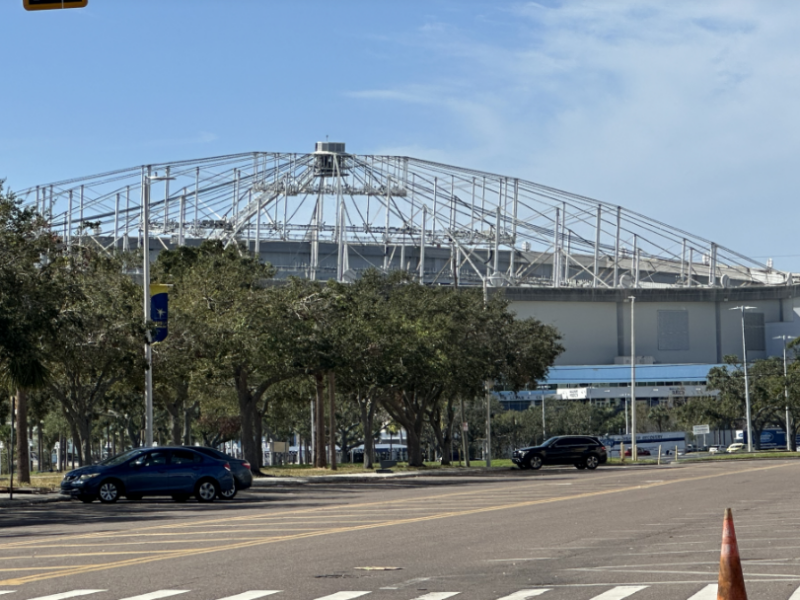Keeley Sheehan
Managing Editor
Student Government will begin debating Activities and Services fee allocations in March for the 2011-2012 budget. Departments in Student Life & Engagement have begun drafting budget proposals for next year.
The total budget of A&S fee money allocated by SG for the current year was $1,093,000, according to budget documents available on SG’s website. SG is anticipating a projected $64,000 increase in revenue for next year, though that number is not yet definite.
SG’s budget includes funding for clubs and organizations, totaling $20,000 for the 2010-2011 year. Other departments SG allocates funds to are Student Life & Engagement, Leadership, the Waterfront, the sailing team, campus recreation, Harborside Activities Board, Multicultural Affairs, the debate team and The Crow’s Nest.
Based on preliminary requests, the departments involved will be asking for a $150,000 total budget increase, SG President James Scott said during the March 2 senate meeting. SG would have to cut $96,000, SG Vice President Jon Ellington said at the meeting.
Scott is responsible for crafting the budget with SG Chief Financial Officer Alex Moser. They will meet with each department to determine how much money they are asking for and how much they can expect in allocations based on factors like each group’s growth, goals and previous allocations.
Scott will present a proposed budget to the SG Appropriations Committee on March 21, and then the total budget package will go to the 28-member senate, which will debate and vote on the package. Scott has the power to veto the senate’s recommendation, with a third of the senate’s support, sending it back to the senate for further adjustment if necessary.
The Crow’s Nest budget will be up for debate along with the other Student Life departments. Scott and Moser met with members of The Crow’s Nest staff on Feb. 23 to discuss the process.
The Crow’s Nest was originally allocated $22,855 for the current year. During the fall semester, the newspaper was allocated an additional $3,000 for travel to a collegiate press training conference in Louisville, Ky. Earlier in the spring semester, $2,800 was allocated from the remainder of the 2010 homecoming budget to cover the newspaper’s additional printing costs for the spring, because the initial 2010-2011 budget only allowed for four issues to be printed in the spring, rather than eight.
SG also paid $2,600 for advertising in The Crow’s Nest, bringing the total allocation for The Crow’s Nest to about $34,000.
The Crow’s Nest’s budget last year was $45,315. The newspaper requested $45,710 for this year, according to budget documents on SG’s website, but was allocated $22,855 due to issues SG had with the alleged quality of the newspaper.
“That was more of a statement than a strategic move,” Scott said, adding that this current fiscal year meant a state of “equilibrium” for the newspaper’s budget. “We’ve hit an equalization … [the newspaper] is now at a more streamlined budget.”
The budget a group requests is often different from the budget the Appropriations Committee recommends to the senate, according to the figures outlined on SG’s online budget documents. The SG budget for 2009-2010 was $118,724. They requested $199,387 this year, and received $195,287. The Waterfront 2009-2010 budget was $90,026. They requested $99,757, and received $83,557 for this year. Multicultural Affairs had a budget of $35,000 for 2009-2010. They requested $53,500 for this year, and received $38,200. Budget information for other Student Life departments is also available on SG’s website.
Clubs and organizations receiving allocations from A&S fees must be registered with Student Life and Engagement and 70 percent of the group must be comprised of “USFSP currently enrolled credit-seeking students,” according to the Allocation Manual on SG’s website.
Clubs submit budget requests similar to the other Student Life departments, broken down into categories that outline what the requested money will pay for.
Brent Stephens, president of the Kitesurfing Club, called the process a “run around.”
“You have to have an initial meeting where they will tweak your budget to what they think is a more accurate amount you will need,” Stephens said. “There is then a follow-up meeting, and another meeting after that.”
Limited funding has meant that the Gay-Straight Alliance has had to be creative in how it uses its budget, and work harder to raise funds, said President Gavin Nagatomo. “Our organization received a fair share of funds but not enough to meet all of our plans,” Nagatomo said. “We’d certainly have appreciated if our total budget request had been approved but a little less than half of what we requested was authorized.”
Scott said that SG was working under new statutes last year when crafting the budget, and hopes that this year the process will run smoother between the committees and general senate.


